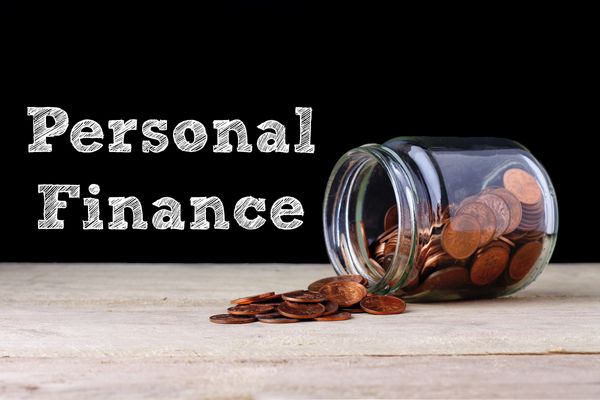The essence of personal finance lies in how you manage, save, spend, and invest your money. This applies not only to people with large businesses or high incomes but to everyone who earns and spends money. By understanding the basic principles of personal finance, you can use your money more wisely, gain control over your finances, and reduce financial stress. Budgeting, saving, borrowing, and investing are all part of personal finance. To maintain your financial stability, you must fully understand these principles.
Why Budgeting Is Important
Everyone should know how to create a budget; it should be one of your top priorities when managing money. A budget is simply a plan that helps you track your income and expenses. Without a budget, it’s easy to overspend and lose track of where your money goes. Creating a budget can help you clarify what’s most important to you, reduce unnecessary expenses, and save more effectively. Simply writing down your monthly income and expenses is enough to create a budget. It gives you a clear picture of how much money you have and helps you make better choices about what you can afford.
Saving for the Future
Another important part of personal finance is saving. No matter how much you earn, it’s important to save some money to build financial security. Saving can help you prepare for emergencies like medical bills, car repairs, or job loss. Saving money can also help you plan for bigger things, like college, buying a home, or retirement. Starting to save early makes it easier to achieve your goals. With a stable job, even a small amount of savings can grow over time. Regular saving teaches you self-discipline and ensures you have enough money to cover future needs, both planned and unplanned.
The Role of Debt Management
Many people have debt, but the most important aspect of personal finance is how you manage it effectively. Guilt isn’t always bad, but if you don’t manage it, it can become a major problem. While credit cards, loans, and mortgages are useful when used properly, they should be used with caution. Understanding how interest rates work, when repayments are due, and the true cost of a loan is crucial. Paying off high-interest debt quickly and avoiding overborrowing can prevent long-term financial problems. Knowing how to manage debt wisely can help you maintain a good credit score, which is crucial for future financial success.
Developing Good Credit Habits
Credit is crucial to your personal finances because it affects your ability to borrow money and even your ability to find a job or rent a home. To develop good credit habits, pay your bills on time, keep your debt low, and avoid unnecessary credit cards or loans. A good credit history demonstrates financial prudence, making lenders more likely to offer you favorable loan terms. Starting these habits now will make it easier to achieve higher financial goals in the future.
Investing Basics
Investing is another crucial part of personal finance that many people consider too difficult. But learning the basics of investing can help you grow your wealth. Stocks, bonds, mutual funds, and even real estate are all types of investments. Investing differs from saving in that it often carries some risk, but it also offers higher returns in the long run. The goal of investing is to make your money work for you, generate income, or increase its value. You can start small and learn as you invest, building confidence. Investing is an important way to build and preserve wealth over the long term.
The Importance of Financial Goals
Setting financial goals is a simple and effective way to manage your money. Goals let you know where you’re going and motivate you to save and spend wisely. Whether you want to buy a house, pay off debt, save for emergencies, or take a vacation, clear goals can help you stay on track. Writing down your goals and breaking them down into smaller steps increases your chances of achieving them. Personal finance isn’t just about numbers; it’s about ensuring your money aligns with your values and goals. Financial goals can help you stay on track and avoid distractions.
Building an Emergency Fund
An emergency fund is a form of savings that should be a priority in financial management. It’s money set aside for unexpected situations, such as job loss, urgent repairs, or acute medical expenses. People without an emergency fund often have to resort to credit cards or loans, which further strains their finances. A good rule of thumb is to save at least three to six months’ worth of essential living expenses. This safety net provides peace of mind and stability, no matter what life throws at you. This is one of the simplest, yet most powerful, truths everyone should know about money.
Conclusion
Everyone should master the basics of personal finance, as they are the cornerstone of a secure and stress-free life. Knowing how to budget, save, manage debt, invest, plan for retirement, purchase insurance, and set financial goals allows you to manage and use your money wisely. Personal finance isn’t about having a lot of money; it’s about maximizing your savings and preparing for the future. By learning these simple rules, you can avoid financial problems and feel confident about how you manage your finances.
FAQs
1. What’s the first thing you should do with your finances?
The first step is creating a budget so you know exactly how much money you have and how much you spend.
2. Why is saving so important?
Saving gives you financial security and helps you prepare for emergencies and future aspirations.
3. Is all debt bad?
Debt isn’t always bad, but it should be approached with caution. Some debt, such as student loans or mortgages, can be beneficial if managed responsibly.
4. When should I start planning for retirement?
For a better financial future, it’s wise to start as early as possible, even in your twenties.
5. Do I really need insurance?
Yes, insurance can protect you and your family from unexpected expenses and is an important part of budgeting your finances.



